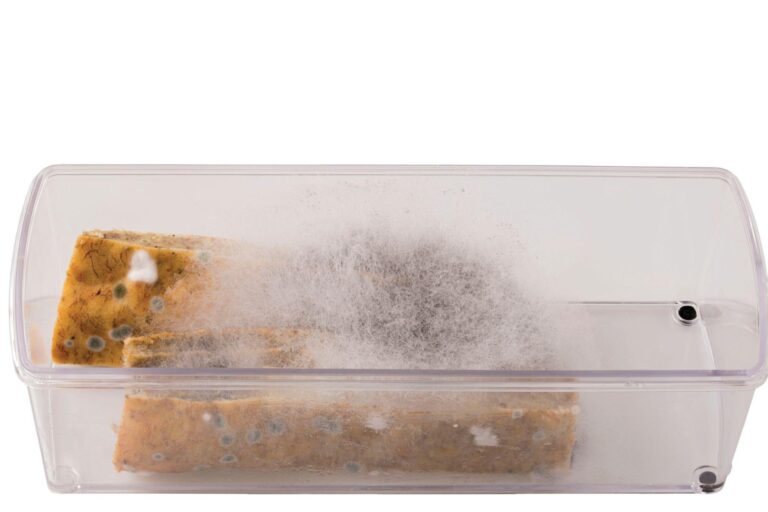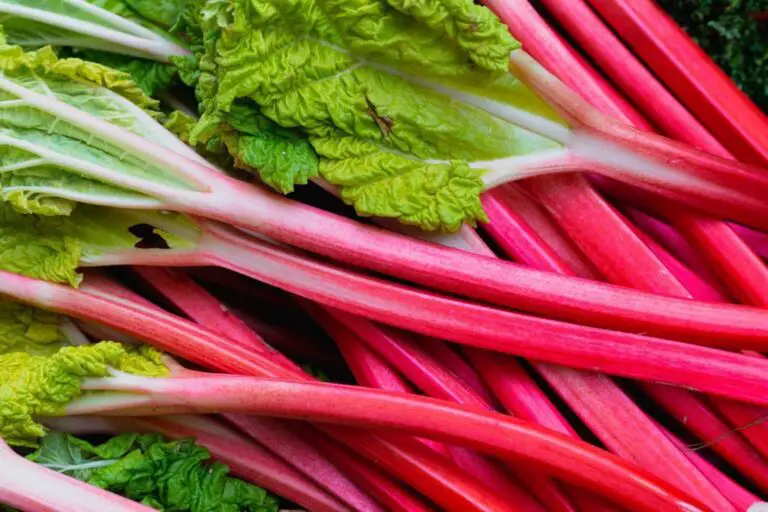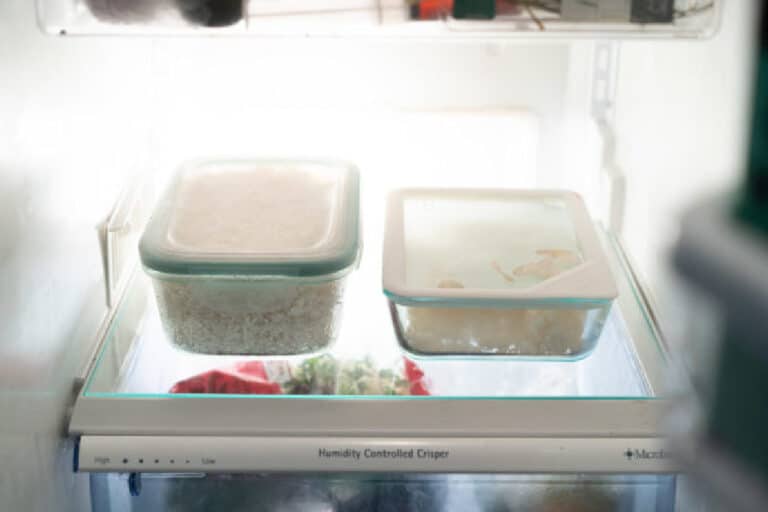Is Eating Cold Food Bad for Digestion and Stomach? Read This First
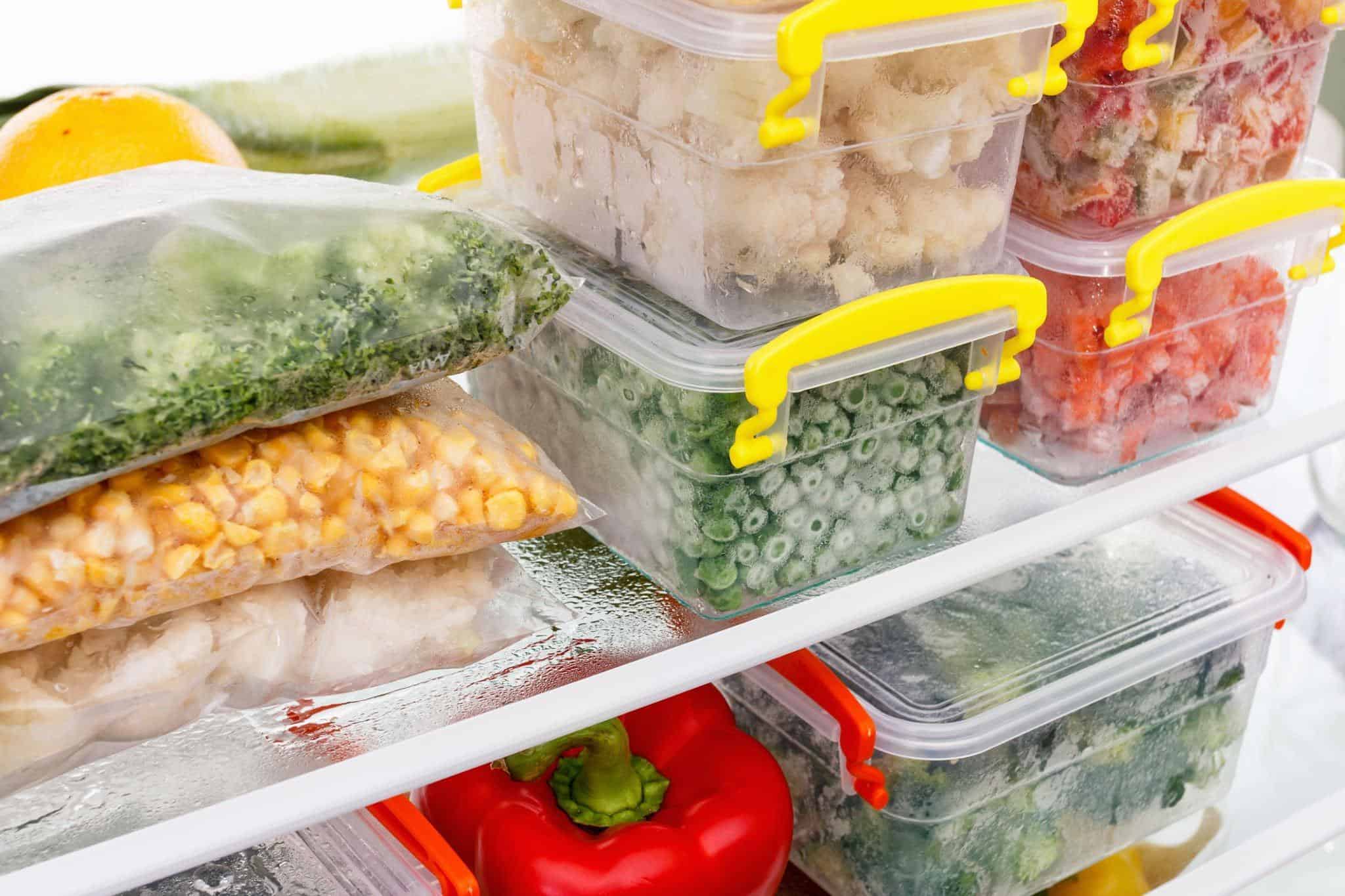
When it comes to choosing what to eat, you may prefer cold food simply because it’s more convenient or because you prefer the taste and texture. Do you find yourself eating cold food often? Are you wondering if eating cold food is bad for your digestion and stomach?
If so, this article is for you. Here, you will find out why eating cold food could be an issue and why you need to be aware of the effects it can have on your digestive system.
We’ll answer the most common questions about this subject and talk about what happens if you don’t take care of your stomach health.
Why Do Some People Enjoy Cold Food?
I’m not sure why, but I absolutely love cold food. From salads to pizza, there’s something strangely satisfying about munching on a meal that’s been chilled in the fridge.
It might seem strange to some, but there are a few reasons why cold foods have been such an enjoyable part of my diet for so long.
- Temperature preference. Some people simply prefer the taste and texture of cold food, regardless of the time of year. They may find cold food more refreshing and enjoyable to eat.
- Seasonal factors. Cold food is often more popular during warm months, when the body tends to overheat. Feelings of coolness, like those from cold food, can help to relieve this feeling of heat and make you feel refreshed.
- Perception of refreshment. Cool, cold, or icy temperatures are strongly associated with a refreshing perception. This may be why cold food is often perceived as being more refreshing than warm or hot food.
- Personal preference. Ultimately, people’s preferences for cold food may come down to individual taste and personal preference. Some people simply enjoy the taste and texture of cold food more than warm or hot food.
The Effect of Temperature on Digestion
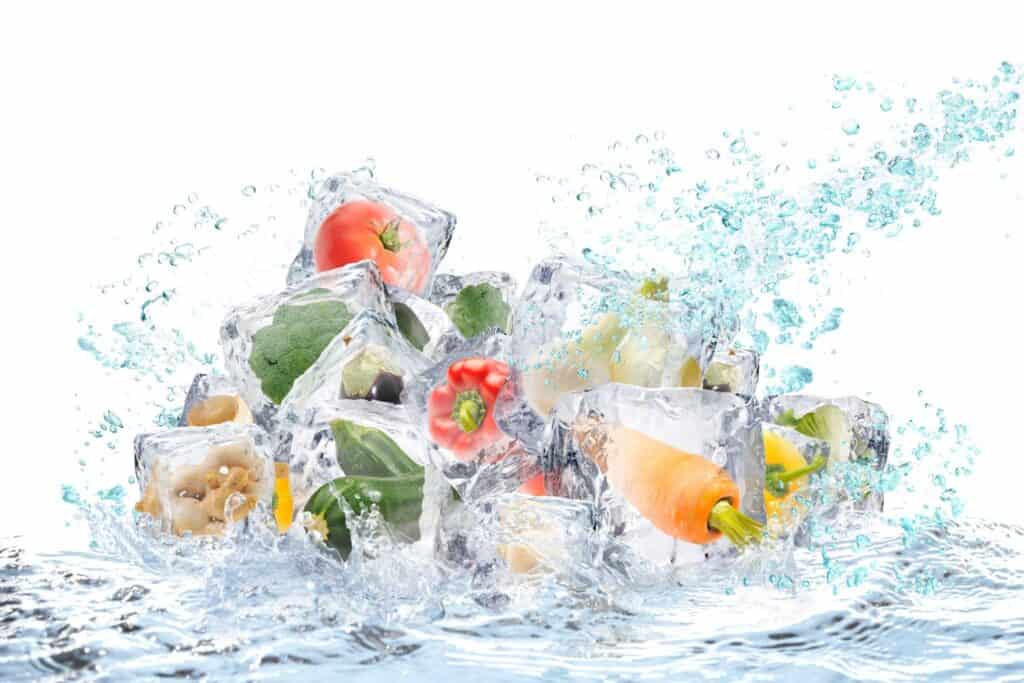
Temperature is an essential factor in controlling digestion. When food enters our bodies, it must be broken down into smaller molecules to be absorbed and used as energy. For this process to work, the body’s temperature needs to stay the same so that the enzymes that break down nutrients can work properly.
Changes in temperature can hurt digestion because they stop enzymes from working as they should. If the temperature inside goes above normal, enzyme production may slow down or stop, which can lead to digestive problems like indigestion, bloating, and constipation.
In the same way, if the body’s temperature drops below its ideal range, digestion can be affected by less enzymatic activity. This makes it hard for the body to absorb nutrients and make energy.
It’s important to keep our bodies at the right temperature so that we can digest food well and get all the nutrients we need from it.
Is Eating Cold Food Bad for Digestion and Stomach?
People like how easy it is to eat cold foods like salads, sushi, and frozen meals these days. But is it bad for our digestion? Some experts claim that eating cold food can affect our digestive system negatively.
Eating cold food may slow down the digestive process because the stomach needs to warm up the food before breaking it down properly. The motility of the gastrointestinal tract (GIT) can slow down with cold food. These muscles help push the food through the digestive system.
Cold foods can also slow down the production of hydrochloric acid, which is needed to break down the proteins in our food.
| The risk of cold food causing damage to the GIT. Cold foods and drinks can damage the GIT lining, causing irritation and inflammation. This can potentially lead to more serious digestive issues, such as ulcers. |
Can Cold Food Causes Stomach Bloating
It is possible that colds and other viruses can contribute to stomach bloating. When the body is fighting off an infection, such as a cold, it can affect how well food moves through the gastrointestinal (GI) tract. This can lead to symptoms such as nausea and bloating, which are common issues that people with irritable bowel syndrome (IBS) often face.
In addition to the effects of colds and other viruses on the digestive system, eating cold food may also make your stomach feel full. The digestive system can be shocked by cold food, making it work harder to break down nutrients. This can lead to digestive discomfort, such as cramping or bloating.
It’s important to be aware of how colds and other viruses can affect the GI tract as well as how cold food could hurt digestion and the stomach.
Avoid cold food and eat warm, easily digestible foods to reduce stomach bloating. To boost the immune system while fighting an infection, stay hydrated and rest.
Other Potential Negative Effects of Consuming Cold Food
- Decreased nutritional value: Some nutrients, such as vitamins and minerals, can be lost during the process of cooking and reheating food. When food sits in the fridge for a long time, this loss can also occur. It also affects our ability to take in nutrients because enzymes work best at body temperature.
- Risk of food poisoning. Some types of food, such as meat and dairy products, are more prone to bacterial growth when they are left at room temperature. These foods should be refrigerated or frozen to prevent bacterial growth and food poisoning.
- Flavor and texture. Cold food may have a less appealing flavor and texture compared to hot food, which can impact the overall enjoyment of the food.
What Temperature Is Food Best For Digestion?
When it comes to the temperature of food and its effect on digestion, it’s important to consider a few different factors. First of all, the best digestion temperature depends on age, health, and personal preferences.
In general, however, it is generally thought that food that is neither too hot nor too cold is best for digestion. The human body likes to keep its core temperature steady at about 90 °F, so that’s the ideal food temperature for our digestion.
It’s also important to consider the type of food being consumed, as some types of food may be more sensitive to temperature changes than others. For example, raw fruits and vegetables may be more susceptible to damage from heat than cooked foods.
Conclusion
Different parts of digestion can be affected by the temperature of food, such as the secretion of digestive juices, the movement of the GIT, the activity of digestive enzymes, and the rates of digestion and absorption. It is important to think about the temperature of the food you eat so that you can digest it best and get the most out of the nutrients you eat.
It’s important to remember that cold food can hurt digestion and stomach health in different ways for different people. Some people may be more sensitive to the effects of cold food than others.
The best temperature for digestion is likely to be somewhere in the middle, neither too hot nor too cold. If you pay attention to how hot or cold your food is and make small changes as needed, you can help your body get the most out of the nutrients you eat.


